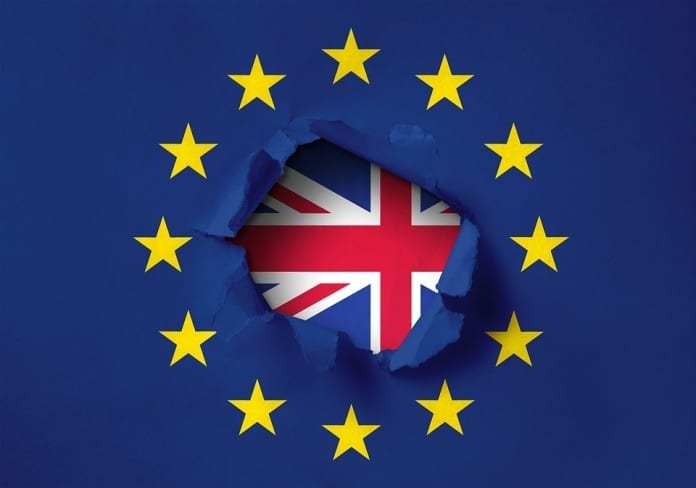While the final decision on how the UK plans on leaving the EU now being pushed back until 12 April, it is clear that our relationship with Europe will change forever in the coming months. Theresa May is still tasked with persuading parliament – for the third time – to accept the Withdrawal Agreement. If successful, this would push the final deadline back until 22 May.
However, if Britain were to see a no-deal Brexit, or a Brexit that puts up barriers for EU nationals to work in the UK, it could spell disaster for various industries. An industry that is often overlooked in this regard is the British music industry which relies on EU workers. From creatives that bring art to the UK and their security staff, to those who keep the bar afloat at festivals and construction workers who build the stages, the UK has long relied on EU talent to fill such vacancies.
The EU’s role in the success of the British music industry
Britain is home to many of Europe’s most high profile music festivals including Reading, Leeds, Glastonbury, Bestival and Boomtown to name a few. These are all headlined by some of the biggest names in music which understandably brings an international and European crowd to these events. On average, a music tourist spends roughly £657 each while visiting the UK. Fortunately, Britain has confirmed that EU citizens will be able to make short-term visits to the UK without a visa after Brexit, meaning this particular source of revenue will not be affected in the near future.
The UK music industry contributed £4.5 billion pounds to the UK economy in 2017, where live concerts alone contributed £1 billion. This has been greatly helped by 131,000 EU nationals who work in the UK’s creative industries while a further 10% of all 47,445 music tourism jobs in 2016 were filed with EU expertise. Frictionless mobility under Free Movement has made it accessible for EU nationals to work in such a diverse industry.
Changes to immigration post-Brexit will disrupt the EU contribution to the music industry
The end ofFree Movement will cause problems for the music industry, regardless of what deal Britain eventually ends up agreeing on. On an individual level it will pose a problem for creatives coming to work in the UK. Currently up to 70% of creatives in music and performing arts identify as self-employed which poses a problem for British employment post-Brexit. The only real option for these workers is to apply for a Tier 2 Work Visa. This visa needs the recipient to be travelling to the UK to carry out a job with a £30,000 salary per year as a minimum. This visa usually has highly skilled workers in mind and requires businesses to apply for a Sponsor License to sponsor the applicant to enter the country. As creatives are often self-employed and make under the £30,000 threshold it would make their chances of working in Britain post-Brexit bleak.
It is not just the EU creatives that would suffer thisfate. Technicians, security staff, producers and bar workers are needed during the festival season and, if they too do not meet the £30,000 minimum income requirement, they will be barred from working in the UK. Combined with the loss of manpower after Brexit, the logistical side to the transport of music equipment from the EU to Britain will be impeded. Currently tour managers have to pay for legal documents known as tour carpets that detail all the equipment a touring company or artists have. These have to be renewed annually and can cost put to £500 for solo artists and £2000 for a band. Due to the increased scrutiny EU nationals will face the processing of all these documents at the border will add more time to the tour and combined with the costs this may dissuade overseas artists from touring the UK.
Current solutions to the looming problem
Despite the bleak outlook, there are some steps to take that could be feasible for EU workers travelling to the UK to work in the music industry after Brexit. The government outlined in its December white paperthat EU citizens will be able to apply for a 12-month temporary visa that is designed to help paper the cracks of labour shortages in various industries. However, this would not be a sustainable solution since workers under this scheme are not permitted to enter the country for a further 12 months and the scheme itself is only running until 2025.
Overall the changes to free movement after Brexit will hurt the British music industry. A significant amount of creatives and manual workers will not be able to meet the salary threshold for a Tier 2 Work Visa, while other alternatives are unsustainable. If the government wants to maintain the level of EU workers who currently work in the industry, then they must suggest viable alternatives for them to enter the country after Brexit.
This article has been provided by Conor Kavanagh who is a specialist content writer and correspondent for the Immigration Advice Service – an organisation of leading UK immigration Solicitors.

| [donate]
| Help keep news FREE for our readersSupporting your local community newspaper/online news outlet is crucial now more than ever. If you believe in independent journalism,then consider making a valuable contribution by making a one-time or monthly donation. We operate in rural areas where providing unbiased news can be challenging. |



















